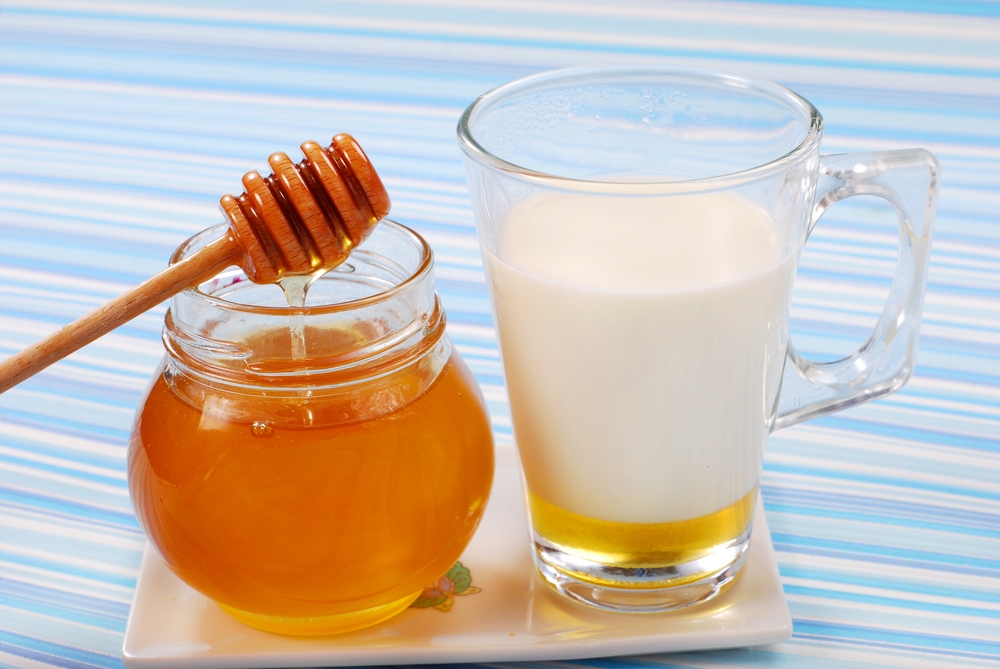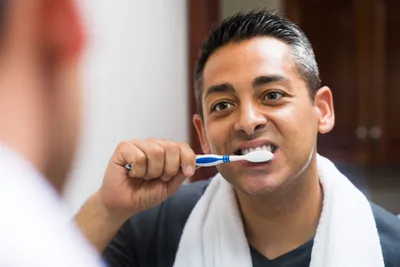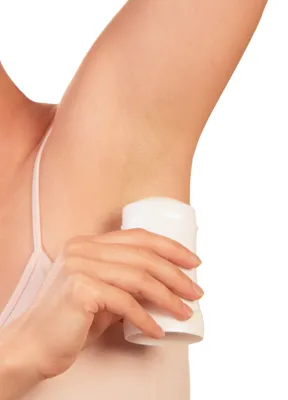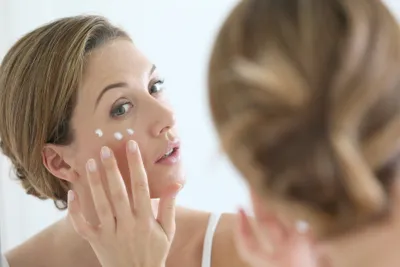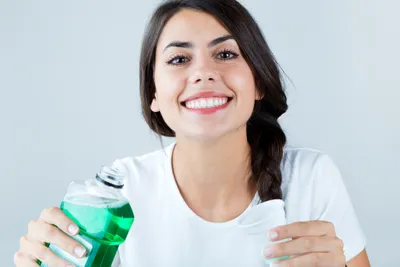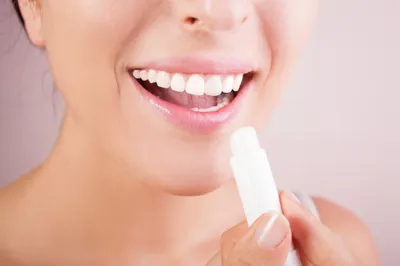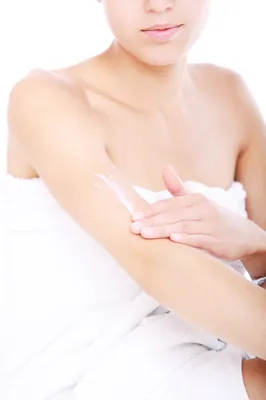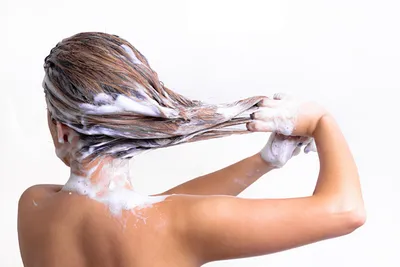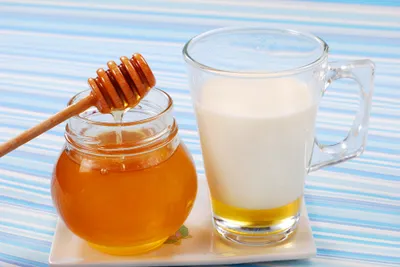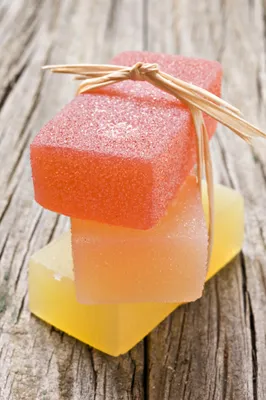These days there are a lot of people who are choosing to live a more natural life, they’re looking to change up old habits, and move away from products containing chemicals and artificial ingredients. This all-natural movement extends to your beauty and personal care routine, an area of our lives that can be filled with hidden chemical ingredients. We use so many different products on any given day, most of the time without stopping to even consider what we’re putting in and on our bodies. Parabens, Isopropyl Alcohol, Petrolatum, Sodium Lauryl Sulfate and many other toxic ingredients are lurking in those little bottles and we’re exposing ourselves to them every day.
The answer to this toxic dilemma is easy, and just involves a little DIY. With a few simple ingredients you can make a variety of all-natural personal care products to replace many of the commercially produced items you use each day. Here are ten natural personal care products that you can make at home…
1. Toothpaste
We all use toothpaste every day, probably multiple times per day, but there is some controversy around some of the popular ingredients we use to clean our teeth. Fluoride has been praised for saving our teeth, but it has become highly controversial as it has been deemed a skin irritant and been linked to cases of acne outbreaks. Sodium Laurel Sulfate is the ingredient responsible for that foamy lather we’ve come to expect from our toothpaste but it’s actually a scary surfactant used to clean engines, garage floors and at car washes.
There are many natural ingredients that work well to clean and protect out teeth including baking soda, neem, coconut oil, xylitol and herbs. To make your own toothpaste, combine 1/2 cup of softened coconut oil, 2-3 tablespoons of baking soda, 15-20 drops of peppermint or cinnamon oil and 2 small packets of stevia powder (for sweetness.) Once combined, pour into a small glass jar and dip your toothbrush in and use a small amount as you would regular toothpaste.
2. Deodorant
The truth about the nasty ingredients in commercial deodorants and anti-perspirants has finally come to light in recent years and people are now looking to eliminate harmful ingredients like aluminum, which has been associated with increased risk of Alzheimer’s disease and breast cancer from their lives for good. The only problem is that in our Western society, there’s a real stigma around body odor and perspiration, which I believe is quite silly since our body is designed to sweat as a means for cooling us down.
Body odor on the other hand is something a little more inconvenient and embarrassing, so wanting to keep that under wraps is understandable. Whip up your own natural deodorant by mixing 3 tablespoons of melted coconut oil, 3 tablespoons baking soda, 2 tablespoons melted shea butter, 2 tablespoons of arrowroot or organic cornstarch with a few drops of essential oil of your choice. Pour into a glass container for storage or into an empty deodorant stick for easier use.
3. Moisturizer
No one likes to have itchy, dry, scaly skin so moisturizer is a stable product in many people’s bathroom cabinets, especially during the dry months of winter. Personally I love that feeling of smooth, dewey soft skin that you get after applying a good moisturizer, but a look at the ingredients list on commercial moisturizers could have your reeling. Thickening agents, artificial colours and artificial fragrance are just the tip of the iceberg and many more toxic and potentially carcinogenic ingredients can lurk beneath the surface.
Thankfully, moisturizer is a really easy product to make yourself with all-natural ingredients. Combine 1/2 cup almond or olive oil, 1/4 cup melted coconut oil, 1/4 cup melted beeswax, 1 teaspoon vitamin E oil and 2 tablespoons of shea butter or cocoa butter. Add any essential oils of your choice such as vanilla, rosehip or jasmine and store in a glass jar for daily use.
4. Sunscreen
There’s been so much controversy around commercial sunscreens in recent years, of course we want to be protected from the harmful UV rays of the sun, but is putting potentially harmful chemicals on our skin the right answer? This has been a topic of great interest to me recently and I’ve discovered that there are many all-natural ingredients out there with great sun-protection properties.
Coconut oil and zinc oxide both have natural SPF factors and can be used to make your own sunscreen at home. The process is a little more precise than some other personal care products and all ingredients are measured by weight, but trust me, the resulting product is worth the time and effort. Check out this great recipe for detailed ingredients and processes.
5. Mouthwash
All the oral health gurus out there will agree that your month just isn’t perfectly clean and fresh without a swish of minty-fresh mouthwash. Commercial mouthwashes kill odor-causing bacteria and help keep your breath fresher for longer, but this freshness may come at a cost. Synthetic colors, artificial sweeteners, alcohol, fluoride and even formaldehyde can appear in common mouthwash ingredient lists.
There are some natural products available out there, but to be truly sure of exactly what you’re putting in your mouth, there’s no better option that doing it yourself. To make your own natural, breath-freshening mouthwash, combine 2 teaspoons baking soda, 10 drops of natural liquid sweetener such as stevia or xylitol, 10 drops trace minerals liquid, 10 drops peppermint oil, 5 drops spearmint oil and 5 drops lemon oil with 2 cups distilled water.
6. Lip Balm
If you’re like me, lip balm is one of your most used personal care products. I have one on me at virtually all times because there’s nothing worse than the feeling of dry or chapped lips. It’s important to pause and think about what you put on your lips for a couple of reasons; first, the skin in much thinner than other parts of the body so products will be more easily absorbed into the blood stream and you’re also more likely to ingest some of your lip balm throughout the day.
That being the case, make your own lip balm at home to ensure you’re putting on nothing but natural ingredients. To do so, combined 1 tablespoon melted beeswax, 2 tablespoons melted shea, cocoa, or mango butter, 2 tablespoons melted coconut oil and about 20 drops of your favorite essential oil for fragrance and flavor.
7. Body Butter
If you’re not a big fan of body lotion, maybe body butter is more your thing. The rich creamy hydration just can’t be beat as far as delivering a surge of moisture, but like I discussed with moisturizers above, the ingredients in these products aren’t always as kind to our skin as we think.
Thankfully, body butter is an easy product to DIY right in your own home with a few simple ingredients. Make a luxurious whipped vanilla bean body butter, by melting 1 cup raw cocoa butter, 1/2 cup almond oil and 1/2 cup coconut oil in a double boiler. Grind 1 whole vanilla bean in food processor and add to oils, let firm up in freezer for 20 minutes then whip with electric beaters and store in a glass jar.
8. Shampoo
Shampoo is another essential cosmetic product that we use everyday, but it can be doing more harm than good. Aside from over-stripping our hair of its natural oils, shampoo can contain sulfates, paragons and other controversial ingredients.
If you really want to show your locks some love, try making this DIY shampoo yourself by mixing 1/2 cup liquid castile soap, 1/4 cup canned coconut milk, 1/4 cup honey, 2 tablespoons fractioned coconut oil, 1 tablespoon vitamin E oil and 50 drops of your essential oil of choice (I like ylang ylang) and shake in a bottle until combined. Use as you would any regular shampoo.
9. Face Masks
At-home face masks are a great way to pamper yourself without spending a fortune going to the spa. While commercially produced face masks are still a cheaper alternative to the spa, they can contain chemicals and pharmaceutical ingredients that you might think twice about before putting on your face.
Instead, make your own luscious face mask at home with this easy recipe by combining 1/3 cup instant oatmeal, 1/2 cup hot water, 1 tablespoon raw honey and 1-2 tablespoons greek yogurt in a blender until smooth. Slather all over your face, leave for 10-15 minutes and rinse with warm water.
10. Soap
Forget body wash, nothing is more easy to make, and easy to use than a good old fashioned bar of soap. But if you want to avoid all the artificial colors, fragrances and chemical additives, it’s best to make your own bars at home.
The soap-making process is a little more complicated and uses some ingredients you may not have experience with (like lye) so make sure you read and follow the recipe and directions carefully. Here is a great beginner soap recipe which uses coconut, olive and almond oils. Once you get the hang of it you can experiment with tons of different fragrances and additions like oatmeal and lavender.
